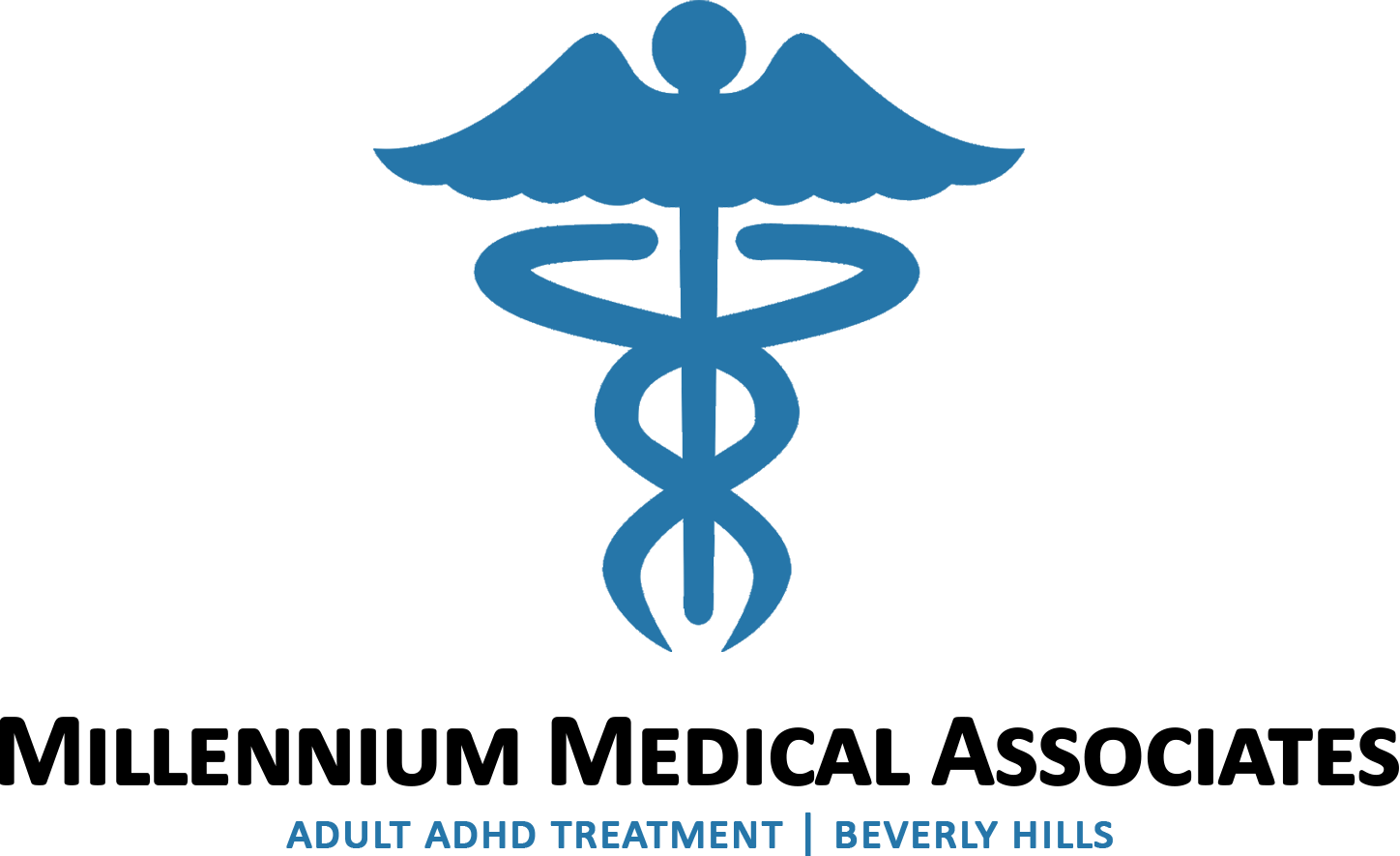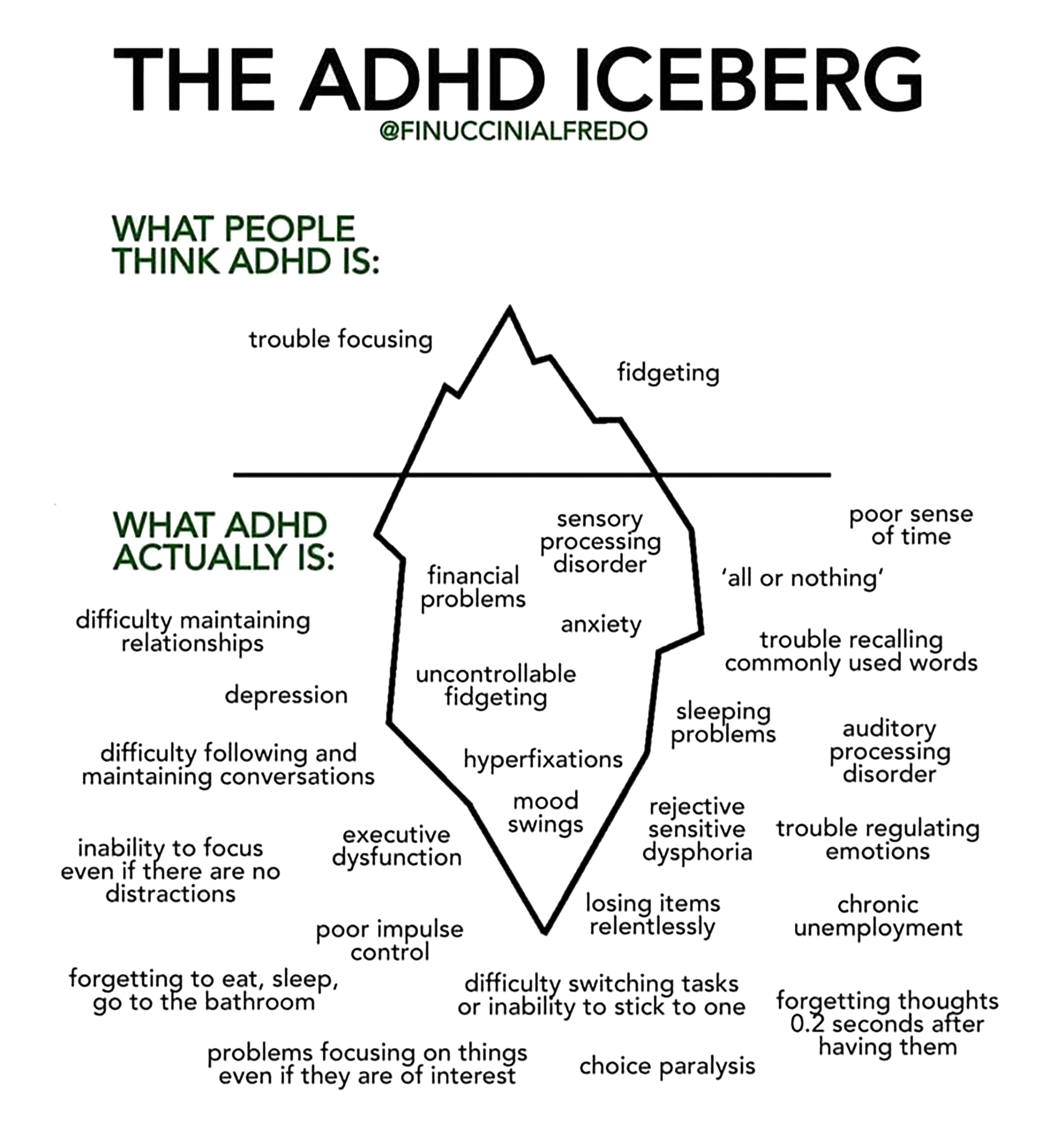What is Adult ADHD?
ADHD Affects Adults
Attention Deficit Hyperactivity Disorder or ADHD (previously called ADD) affects millions of American adults. Experts believe that up to 5.6% of adults between ages 18-44 have ADHD. As many as 3.5% of people over aged 50 have the disorder. Most of these people suffer in silence because only one in five adults with ADHD receives any diagnosis or treatment! The consequences of untreated adult ADHD include:
Higher rates of drug and alcohol abuse
Less likely to graduate from college
Lower paying jobs
More likely to need welfare.
These issues impact more than just those who have ADHD. Untreated ADHD creates problems for families, businesses, and society at large! By raising awareness, we can reduce the stigma and help silent sufferers. Any adult experiencing ADHD symptoms should waste no time finding a doctor, getting evaluated for ADHD, and learning about ADHD treatment options.
Adult ADHD Symptoms
Adults are not simply taller children. The human brain changes dramatically with age. For this reason, the most common symptoms for adults with ADHD tend to be different from what children experience. Adults tend to feel less bothered by hyperactivity-related problems like fidgeting or the need to stand or walk frequently. Compared to kids, adults have more trouble:
Avoiding distractions
Making hasty decisions
Stopping activities when someone asks
Starting projects before getting directions
Doing tasks in order and on time
Driving too fast
Keeping emotions in check
Staying organized or being prepared.
Most of us can identify with a few of the items on this list, but someone with ADHD might be able to identify with several of them. If these problems feel a little too familiar, a doctor can help.
Diagnosing ADHD in Adults
Strange as it may seem, most doctors diagnose ADHD using nothing but a series of questions. During this interview, doctors rely on information from the DSM-V. This book houses research-based standards to help diagnose mental health problems. Doctors diagnose ADHD if a person meets the conditions outlined in the book. In clear-cut cases, people need no further testing.
ADHD Testing for Adults
However, sometimes doctors feel uncertain about whether someone meets the official standards for ADHD. In these cases, doctors have the option to use further testing. These tests include:
The Revised Conners' Adult Rating Scale
The Barkley Adult ADHD Rating Scale
The Wender-Reimherr Adult ADD Scale
The World Health Organization's Adult ADHD Self-Report Scale.
Sometimes, doctors may request MRI films or EEG brain-wave studies. Rarely, doctors order blood tests to rule out other issues, but there is no blood test for ADHD.
Medical Treatment for Adult ADHD
Most of the time, ADHD treatment involves medication and behavior changes. Medication for ADHD usually includes prescription stimulant pills such as Adderall, Ritalin, or Vyvanse. In some cases, doctors may recommend non-stimulant drugs such as Strattera. No two people are exactly alike. And so, providers will work with their patients to find a treatment that fits. Outside of drugs, doctors help patients develop new habits or routines to address weaknesses caused by ADHD.
Adult ADHD Summary
ADHD impacts millions of adults in the United States, and up to 80% of adults with ADHD go undiagnosed and untreated. Using what we just learned, we can help ourselves or our loved ones find help. Millennium Medical Associates can provide tools and resources to help adults thrive regardless of ADHD. If you feel that you might benefit from talking to a healthcare provider about ADHD, please make an appointment here.
REFERENCES & FURTHER READING
Young JL, Goodman DW. Adult Attention-Deficit/Hyperactivity Disorder Diagnosis, Management, and Treatment in the DSM-5 Era. Prim Care Companion CNS Disord. 2016;18(6):10.4088/PCC.16r02000. Published 2016 Nov 17. doi:10.4088/PCC.16r02000

